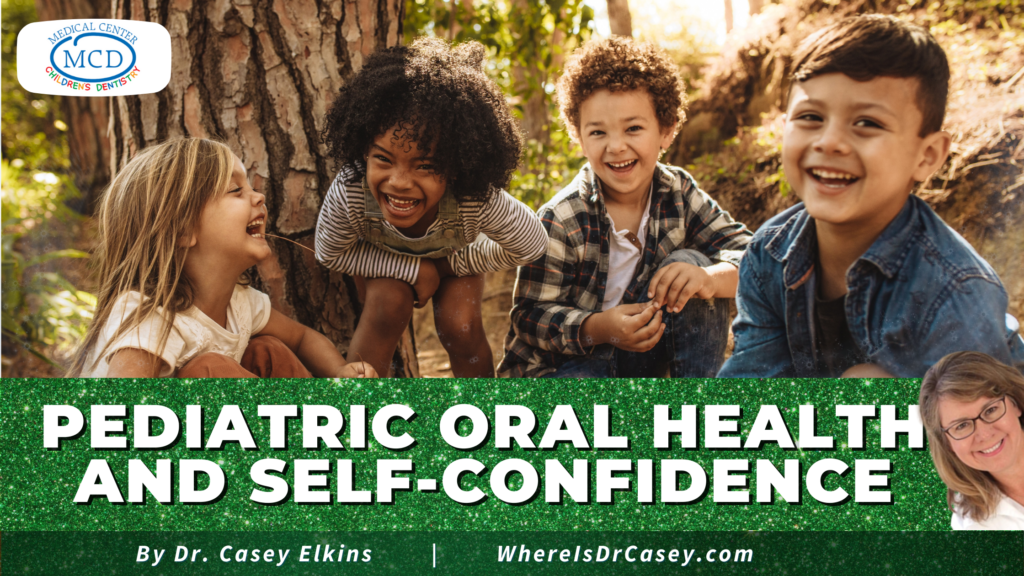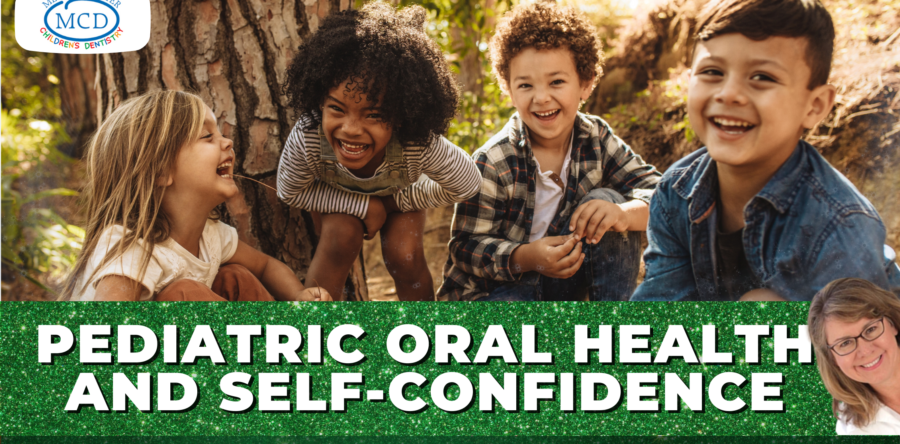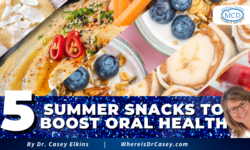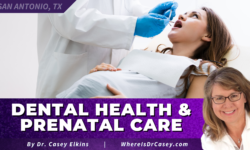
There is no doubt that pediatric oral health plays a pivotal role in a child's overall well-being and development. The early years of a child's life are critical for establishing good oral hygiene habits and preventing dental problems. It is vital for maintaining positive health regardless of age.
Not only does pediatric oral health impact physical health, but it also profoundly influences a child's confidence and self-esteem. Dr. Casey and other dental professionals recognize that the importance of pediatric oral health and its direct connection to building confidence in children.
The Foundation of Pediatric Oral Health
Establishing a solid foundation for pediatric oral health begins before a child's first tooth appears. Parents and caregivers should clean their infants' gums gently with a clean, damp cloth after feeding to prevent the buildup of bacteria. This ensures that the baby’s gums are clean and there is no residue left behind.
Once the first tooth erupts, typically around six months of age, it is time to introduce a soft-bristled toothbrush and fluoride toothpaste in an amount no larger than a grain of rice. However, because your child is so small and their dexterity is limited, you must help them care for their incoming teeth. This will also get them used to the sensation of brushing over time.
As your child grows up they will be able to brush their own teeth with assistance and begin flossing as well. Without flossing, you miss over 30% of your tooth's surface. This is why it is so important for children to begin flossing too. Your dentist will be able to help you decide when to start these phases of dental care based on your child's unique oral health needs.
Regular dental visits should start by the child's first birthday or within six months of their first tooth erupting. These first dental visits allow parents to receive guidance on oral care practices, identify potential issues, and create a positive association with Dr. Casey and her staff. Regular dental check-ups, combined with consistent oral hygiene practices at home, form the cornerstone of pediatric oral health. We are all working together!
Preventing Dental Problems
Prevention is key when it comes to pediatric oral health! Encouraging good oral hygiene practices from an early age helps prevent dental problems such as tooth decay, cavities, and gum disease. Teaching children to brush their teeth at least twice per day for two minutes using fluoridated toothpaste helps remove plaque and bacteria, promoting healthy teeth and gums.
Scientific discoveries over the last two decades have shown dentists and doctors alike that oral hygiene has an impact on more than our mouths! Dentists can see symptoms of many non-oral diseases through symptoms originating in the mouth. This full-body correlation is called the Oral Systemic Link and is currently being studied by medical professionals to increase the efficiency of preventative care.
Parents should also monitor their child's diet, limiting sugary snacks and drinks, which can contribute to tooth decay. Encouraging the consumption of a well-balanced diet rich in fruits, vegetables, and calcium strengthens teeth and supports overall oral health. Additionally, the use of dental sealants and fluoride treatments can provide added protection against cavities. Of course, oral hygiene habits are one of the easiest ways to prevent cavities, decay, and more.
The Link Between Pediatric Oral Health and Confidence
Pediatric oral health is closely intertwined with a child's confidence and self-esteem. A healthy and attractive smile enhances a child's social interactions and self-image. Conversely, dental issues such as tooth decay, missing teeth, or crooked teeth can lead to embarrassment, self-consciousness, and a lack of confidence.
While we understand that dental care is often perceived as being aesthetic, oral health greatly impacts our overall health. Good oral health leads to feeling good internally, externally, and overall confidently. Oral health needs to be taken seriously regardless of your child’s age.
Children with healthy teeth are more likely to engage in activities such as smiling, speaking, and laughing, which are crucial for building social connections and developing friendships. When children have confidence in their smiles, they are more likely to participate actively in school, social events, and extracurricular activities, fostering a positive sense of self-worth. Also, children in good health get out and socialize more than those who are struggling with day-to-day wellness.
Addressing Dental Anxiety and Promoting Confidence
Dental anxiety is a common concern among children and can hinder their access to necessary oral healthcare. Parents and dental professionals must work together to alleviate any fear and anxiety a patient may associate with dental visits. Creating a positive and supportive environment at the dentist's office, explaining procedures in an age-appropriate manner, and using positive reinforcement techniques can help reduce anxiety and build trust.
Parents and caregivers play a significant role in promoting confidence by modeling positive oral health behaviors. When children observe their parents brushing, flossing, and prioritizing oral health, they are more likely to adopt those habits themselves. Encourage open communication about oral health and address any concerns or questions, this will help children foster a sense of empowerment and autonomy.
Pediatric oral health is essential not only for maintaining healthy teeth and gums but also for nurturing a child's confidence and self-esteem. By establishing good oral hygiene practices from an early age, preventing dental problems, and addressing dental anxiety, parents and caregivers can contribute to their child's oral and overall health. At Medical Center Children’s Dentistry, we are committed to helping our patients and their parents achieve the best overall health possible. We recognize this is a team effort, so we are always available for parents to call and ask questions. Feel free to contact us at any time if you have any pediatric dental concerns!






